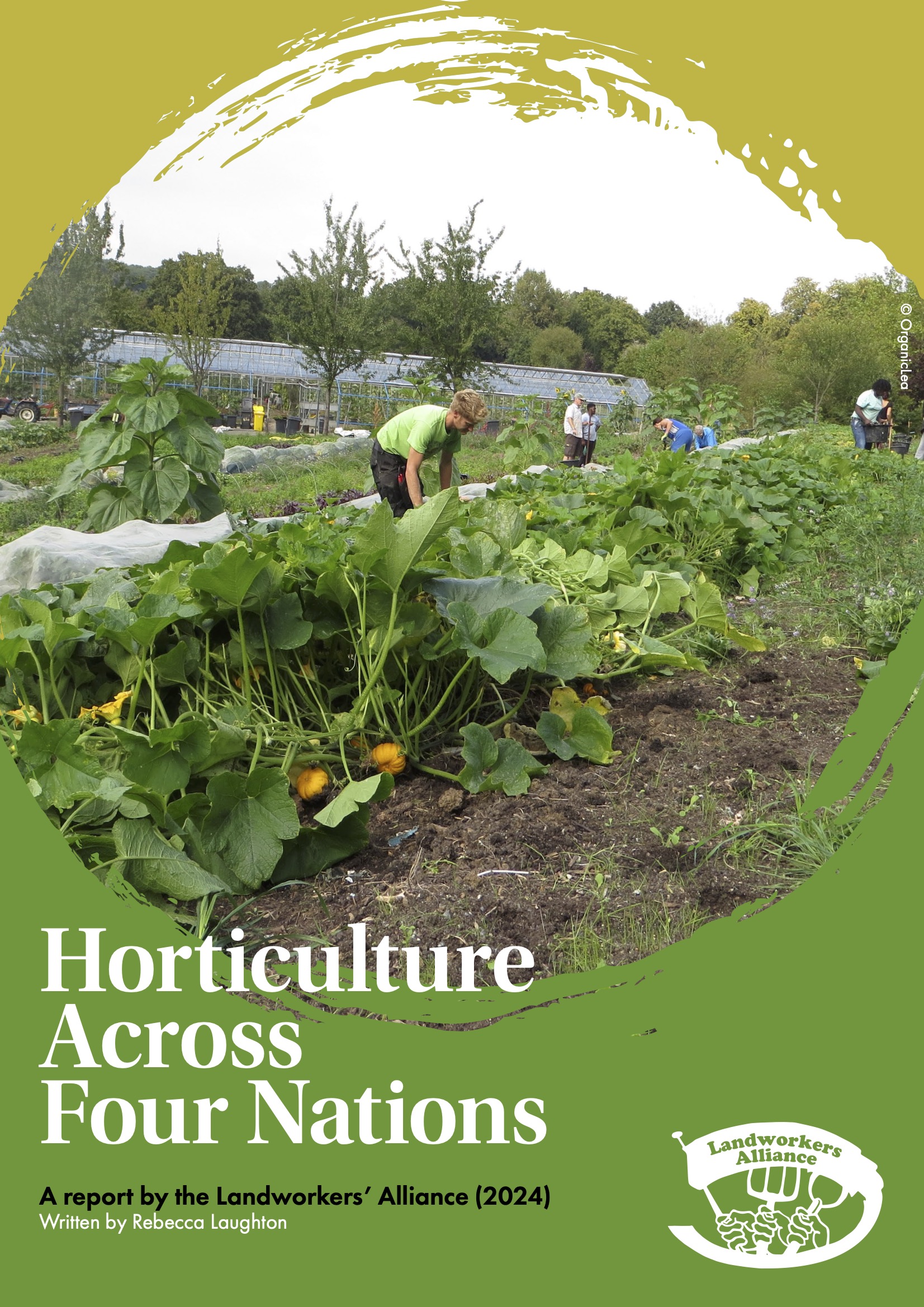What’s the issue?
Over the last 30 years the area of land used to grow vegetables in the UK has decreased by 26%. Meanwhile, we have become increasingly dependent on imported fruit and vegetables, and we now rely on on overseas imports for 43% of our veg supply, and over 80% of our fruit supply. Many of the countries that grow this produce, such as Spain and Morocco, are now becoming increasingly vulnerable to drought and poor harvests as a result of global warming.
If everyone in Britain were to eat the ‘7-a-day’ recommended by Public Health England, we would need an additional 2.4 million tonnes of fresh produce; an equivalent to a 66% increase in UK production compared to current levels. It’s obvious that a massive upscaling of domestic fruit and vegetable is therefore required, and we believe that small-scale agroecological farms and market gardens should have a significant role to play in this horticultural renaissance.
Latest news
At the Farm to Fork Summit (14th May 2024) the Prime Minister set out a “Blueprint for boosting the British Fruit and Vegetable Sector”. This included doubling the budget for the replacement Fruit and Vegetable Aid Scheme to £80 million. While little detail is provided about the new horticulture resilience and growth offer, it seems that Defra continue to be focused on high tech solutions, such as controlled environmental horticulture (CEH translated as glasshouses using combined heat and power, hydroponics, vertical farms etc), automated pack houses and genetic improvement networks. On the positive side, individual businesses, rather than just Producer Organisations (PO)*, will be able to access the new Horticulture Resilience and Growth offer, potentially opening the fund up to agroecological market gardens. LWA will be working hard over the coming months with other organisations representing agroecological growers to ensure that these announcements translate into support for our members.
To read the full policy paper on the Blueprint to boost the British Fruit and Vegetable Sector see yma.
*The legacy F&V Aid scheme was only open to POs, which are groups of 5 or more horticultural businesses with a combined turnover of a minimum of £1 million and whose members are required to sell at least 75% of their produce through the PO. Hence, this scheme was inaccessible to agroecological growers, who tend to sell the bulk of their produce to local markets.
Beth ydym ni’n ei wneud?
Rather than increasing the scale of production on a few large farms, the Landworkers’ Alliance believes that a dramatic increase in the number of small scale, agroecological producers growing fruit and vegetables close to the point of sale would help address the issues whilst bringing numerous additional benefits.
To achieve this we have created documents outlining the numerous benefits of this approach and developed policy proposals that would help make this a reality. We are now working with Defra and our members to get these proposals developed into policy.
- Growing the Goods – A horticulture test and trial for the new Environmental Land Management Scheme (ELMS) to find ways to adequately incentivise and reward the delivery of public goods for both small and large scale growers.
- Fringe Farming – Promotion of peri-urban horticulture across five cities in the UK and advocacy for local and national policies that would better support fringe farming. LWA hosts a “peri-urban practitioners forum” which meets quarterly to share experience and best practice.
- Horticulture Across Four Nations – The LWA policy coordinators of England, Scotland and Wales meet regularly to support one another in the mission to build the capacity of growers in all the devolved nations.
- Food Zones Case Studies – Part of our horticultural vision for the UK is that most fruit and vegetables for every city would be supplied by a mixture of producers from urban, peri-urban, rural hinterland areas, supplemented by national and international produce. We are collecting case studies of where this is already happening, to help other cities develop their “food zones” supply systems.
- Horticulture Study Tours – Visiting both rural and peri-urban horticulture holdings is a powerful way to demonstrate to MPs and civil servants the benefits of agroecological horticulture. We organise one or two opportunities each year to get policy makers onto farms.
- FVA and AFVA – We are an active member of the Fruit and Vegetable Alliance (FVA) and sub-group the Agroecological FVA (AFVA), alongside other growers’ organisations. The FVA meets twice yearly, to enable growers organisations of all scales to collaborate on pushing for a horticulture strategy and share information. The AFVA meets monthly and is focussed during 2024 on lobbying to ensure that the revised Fruit and Vegetable Aid Scheme is accessible to agroecological growers.
- The LWA Horticulture Campaign Team meets quarterly with the Defra Horticulture Team to share information.

Sut allwch chi helpu?
Explore our Horticulture Across Four Nations campaign toolkit (click ‘See the board’ below) for relevant resources and guides on how you can get involved in the campaign and be an advocate for small-scale horticulture.
The toolkit includes:


Provide feedback on ‘Horticulture Across Four Nations’
The LWA hopes to build consensus around its vision for a market garden renaissance, bringing together our own members and people from other organisations. Our campaign document, Horticulture across Four Nations, was launched in January 2024 at ORFC, and we’d love to hear what you think of it. Please use this form to leave your feedback, so we can evolve the campaign to better meet the needs of the organic and agroecological growers we hope we represent.
Contact
Rebecca Laughton: rebecca.laughton@landworkersalliance.org.uk

















